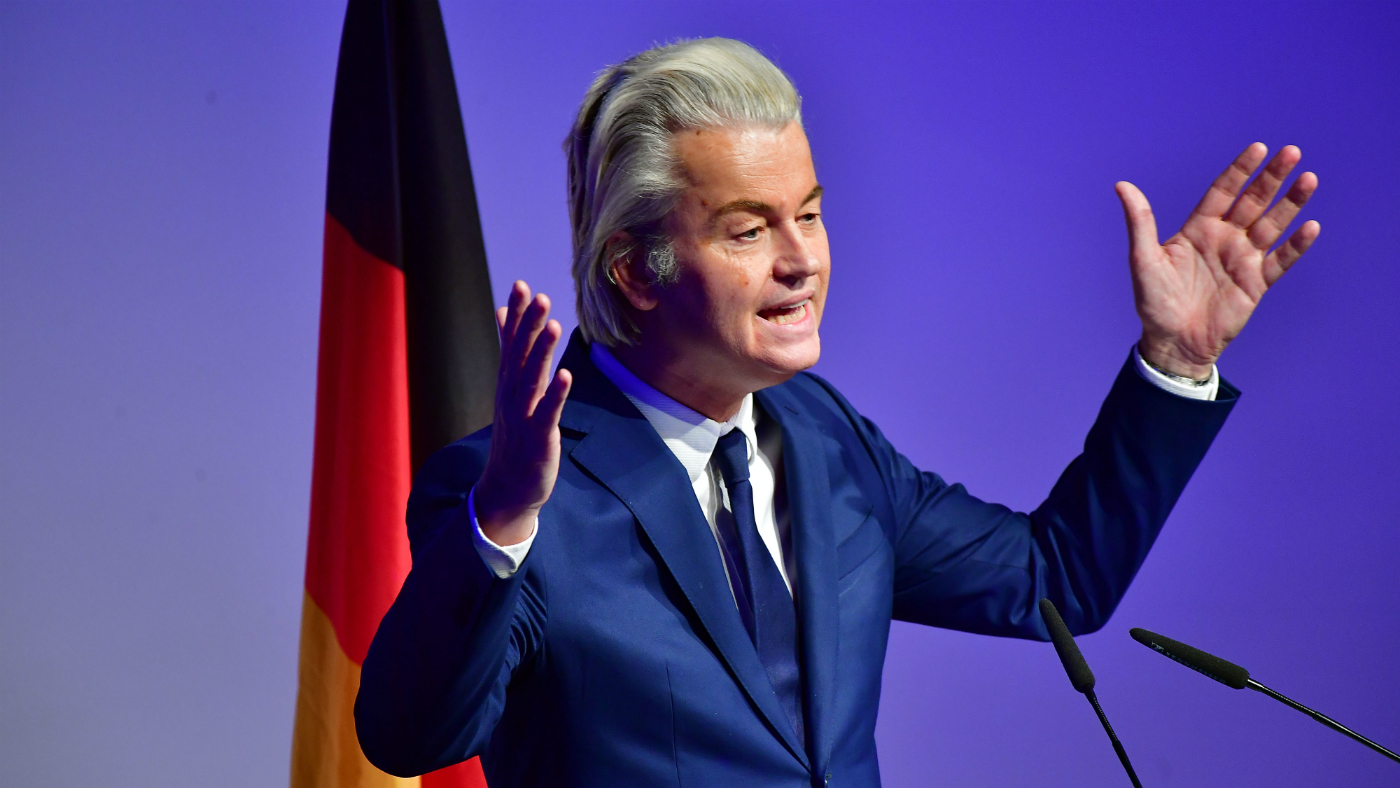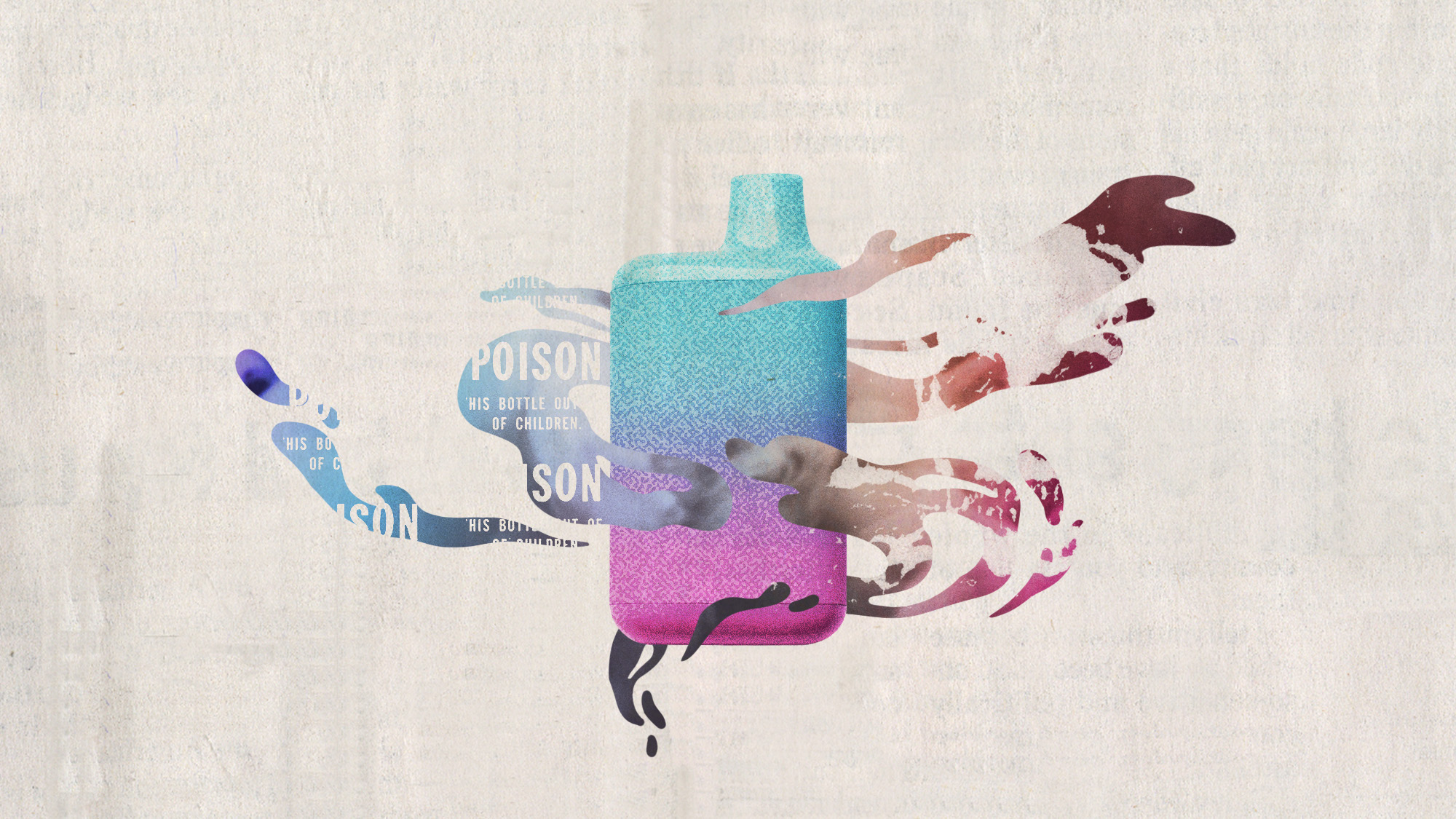Geert Wilders: the far-right leader set for political comeback in the Netherlands
Anti-Islamic MP emerges as potential kingmaker in Dutch general election

A free daily email with the biggest news stories of the day – and the best features from TheWeek.com
You are now subscribed
Your newsletter sign-up was successful
A surge in support for the far right has thrown the knife-edge Dutch election into further chaos, with an anti-Islamic MP emerging as the kingmaker.
Justice minister Dilan Yeşilgöz-Zegerius replaced former prime minister Mark Rutte as leader of the conservative-liberal People's Party for Freedom and Democracy (VVD), after he resigned this summer. Ahead of Wednesday's election, she is "neck and neck in the polls" with centrist Pieter Omtzigt, who is "riding a wave of popularity" after starting his conservative New Social Contract (NSC) party three months ago, said Politico.
The far-right Party for Freedom (PVV) was also riding high in one poll thanks to a surge in support for its leader and co-founder Geert Wilders. The anti-Muslim MP, who has called for a ban on Islamic schools and mosques and has compared the Koran to Hitler's "Mein Kampf", called the survey a "game changer".
The Week
Escape your echo chamber. Get the facts behind the news, plus analysis from multiple perspectives.

Sign up for The Week's Free Newsletters
From our morning news briefing to a weekly Good News Newsletter, get the best of The Week delivered directly to your inbox.
From our morning news briefing to a weekly Good News Newsletter, get the best of The Week delivered directly to your inbox.
Wilders now wants to form a right-wing coalition with the VVD and the NSC, said The Times, "and other populists after a campaign dominated by migration and mistrust". Polling indicates that Wilders will be "kingmaker", and that "eight in 10 Dutch people want to admit fewer asylum seekers".
Who is Geert Wilders?
Wilders, 60, is the longest-serving MP in the Netherlands, said Politico, "with 25 years under his belt". But his "anti-Islam, anti-EU party has never been in government". Recently, he has "signaled a willingness to tone down the anti-Islam rhetoric to be part of the next coalition", saying he could drop his proposed ban on the Koran.
Hailing from the Dutch town of Venlo, Wilders went to Israel aged 18 and travelled around the Middle East for two years. He says his opposition to Islam stemmed from "contrasting Israel's openness with its neighbours", according to The Independent in 2017.
He was first voted into public office in 1997, when he was elected to the Utrecht city council as a member of the centre-right VVD. The following year, he was elected to the Dutch House of Representatives and quickly earned a reputation as a "right-wing liberal".
A free daily email with the biggest news stories of the day – and the best features from TheWeek.com
However, his image soon morphed into that of "a controversial and outspoken member of parliament", according to Der Spiegel, and he "called fellow members of parliament 'cowards'". Wilders quit the VVD in 2004, due to disagreements over Turkey joining the EU, and founded the PVV in 2006. It immediately adopted a strong anti-Muslim stance. Wilders has since pledged to "de-Islamise the country" by closing its borders and the PVV has also called for a "Nexit" of the Netherlands from the EU.
Since Yeşilgöz-Zegerius, a former refugee from Turkey, said that she would not exclude the PVV from coalition negotiations, Wilders has taken "an intermittently milder tone", said The Guardian. He has promised "concessions on anti-Islam polities", but he has never apologised for calling for "fewer Moroccans" in a 2014 speech, for which he was convicted of inciting discrimination in 2016.
How might he influence the election outcome?
The pollster Maurice de Hond "overestimated Wilders' share by five seats in the last election", noted The Guardian. However, "even if the Hond opinion poll proves to be an unreliable outlier… a rightwing government is unlikely to take office without the Freedom party's backing", said the Financial Times. "To build a majority rightwing coalition, the support of Wilders is required," Sarah de Lange, professor of politics at the University of Amsterdam, told the paper.
Some parties – including the NSC – have refused to go into coalition with the "anti-constitutional" PVV, she added. Yeşilgöz-Zegerius said after the poll came out that there were "huge differences" between her and Wilders.
Sjoerd van Heck, from polling firm Ipsos, said the recorded surge of support for Wilders is likely to cause "a rallying effect of leftist voters seeking to block a PVV-led government".
Frans Timmermans, former EU climate commissioner turned leader of a new Labour and Green left alliance, and Rob Jetten, new leader of the D66 liberal democrats, "have stepped up attacks on Wilders", said The Times. "It's clear that Ms Yeşilgöz has opened the door for Wilders in the government," said Timmermans. "This would mean someone participates in running the country who dismisses a million Dutch [Muslims] as second-class citizens."
However, said Politico, "in the Netherlands, in the end, it's always a numbers game". As none of the major parties is polling over 20%, "a new coalition is therefore likely to consist of at least three, and maybe even more parties".
Harriet Marsden is a senior staff writer and podcast panellist for The Week, covering world news and writing the weekly Global Digest newsletter. Before joining the site in 2023, she was a freelance journalist for seven years, working for The Guardian, The Times and The Independent among others, and regularly appearing on radio shows. In 2021, she was awarded the “journalist-at-large” fellowship by the Local Trust charity, and spent a year travelling independently to some of England’s most deprived areas to write about community activism. She has a master’s in international journalism from City University, and has also worked in Bolivia, Colombia and Spain.
-
 What is the endgame in the DHS shutdown?
What is the endgame in the DHS shutdown?Today’s Big Question Democrats want to rein in ICE’s immigration crackdown
-
 ‘Poor time management isn’t just an inconvenience’
‘Poor time management isn’t just an inconvenience’Instant Opinion Opinion, comment and editorials of the day
-
 Bad Bunny’s Super Bowl: A win for unity
Bad Bunny’s Super Bowl: A win for unityFeature The global superstar's halftime show was a celebration for everyone to enjoy
-
 Epstein files topple law CEO, roil UK government
Epstein files topple law CEO, roil UK governmentSpeed Read Peter Mandelson, Britain’s former ambassador to the US, is caught up in the scandal
-
 Mexico’s vape ban has led to a cartel-controlled black market
Mexico’s vape ban has led to a cartel-controlled black marketUnder the Radar Cartels have expanded their power over the sale of illicit tobacco
-
 Iran and US prepare to meet after skirmishes
Iran and US prepare to meet after skirmishesSpeed Read The incident comes amid heightened tensions in the Middle East
-
 Grok in the crosshairs as EU launches deepfake porn probe
Grok in the crosshairs as EU launches deepfake porn probeIN THE SPOTLIGHT The European Union has officially begun investigating Elon Musk’s proprietary AI, as regulators zero in on Grok’s porn problem and its impact continent-wide
-
 Israel retrieves final hostage’s body from Gaza
Israel retrieves final hostage’s body from GazaSpeed Read The 24-year-old police officer was killed during the initial Hamas attack
-
 China’s Xi targets top general in growing purge
China’s Xi targets top general in growing purgeSpeed Read Zhang Youxia is being investigated over ‘grave violations’ of the law
-
 Panama and Canada are negotiating over a crucial copper mine
Panama and Canada are negotiating over a crucial copper mineIn the Spotlight Panama is set to make a final decision on the mine this summer
-
 Europe moves troops to Greenland as Trump fixates
Europe moves troops to Greenland as Trump fixatesSpeed Read Foreign ministers of Greenland and Denmark met at the White House yesterday